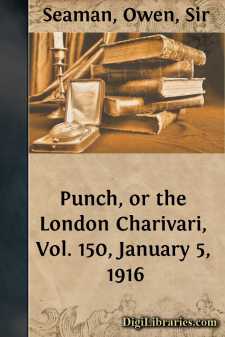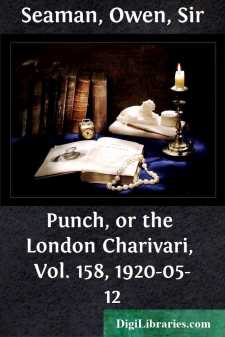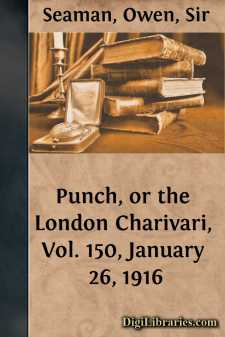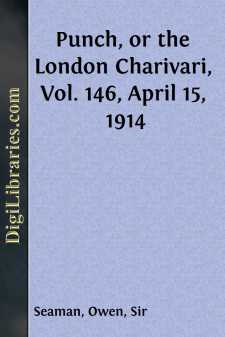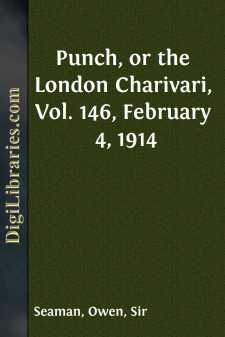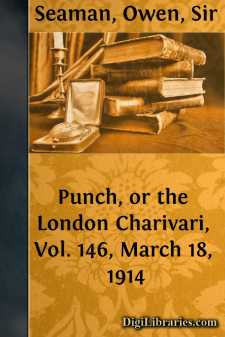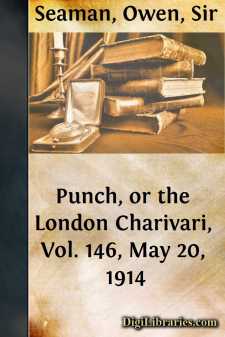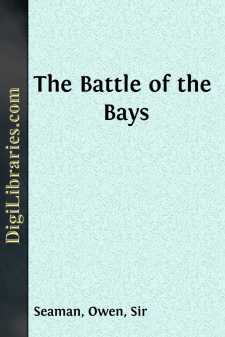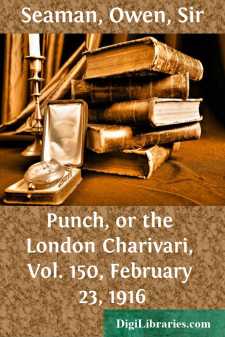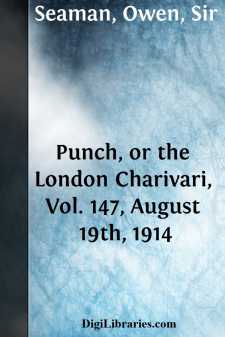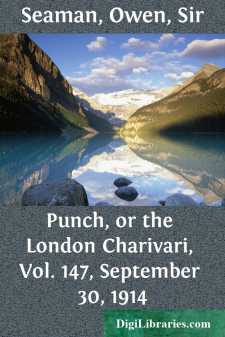Categories
- Antiques & Collectibles 13
- Architecture 36
- Art 48
- Bibles 22
- Biography & Autobiography 813
- Body, Mind & Spirit 142
- Business & Economics 28
- Children's Books 17
- Children's Fiction 14
- Computers 4
- Cooking 94
- Crafts & Hobbies 4
- Drama 346
- Education 46
- Family & Relationships 57
- Fiction 11829
- Games 19
- Gardening 17
- Health & Fitness 34
- History 1377
- House & Home 1
- Humor 147
- Juvenile Fiction 1873
- Juvenile Nonfiction 202
- Language Arts & Disciplines 88
- Law 16
- Literary Collections 686
- Literary Criticism 179
- Mathematics 13
- Medical 41
- Music 40
- Nature 179
- Non-Classifiable 1768
- Performing Arts 7
- Periodicals 1453
- Philosophy 64
- Photography 2
- Poetry 896
- Political Science 203
- Psychology 42
- Reference 154
- Religion 513
- Science 126
- Self-Help 84
- Social Science 81
- Sports & Recreation 34
- Study Aids 3
- Technology & Engineering 59
- Transportation 23
- Travel 463
- True Crime 29
Punch, or the London Charivari, Vol. 150, January 5, 1916
by: Owen Seaman
Categories:
Description:
Excerpt
RESOLUTIONS.
I will not breakfast in my bed
With downy cushions at my head;
That would be very wrong—and so
Away the eggs and bacon go!
I will not read in bed at night
And burn the dear electric light;
Nor buy another costly hat;
Oh no! I'm much too good for that.
But I will rise before the dawn
And weed and cut and roll the lawn;
My border I will plant with veg,
Abundantly from hedge to hedge.
And all the day I'll practise thrift
And no more happily will drift
In deeper debt, as once, alas!
—But what an awful year I'll pass.
The Art of Sinking.
"Altogether we sank one gunboat, five steamers (one of 3,000 tons), and 17 large sailing ships, three trains, and one railway embankment."—Manchester Guardian.
From a notice issued to recruits for the New Zealand Expeditionary Force:—
"You should report wearing a pair of serviceable boots, and bring with you your toilet outfit—no additional clothing is required."
"In a conversation with members of the Press Mr. Ford said now was the time for peace on the basis of the status quo anti bellum.
Scotch Paper.
He always spells it that way.
"I gather, Sir," remarked my fellow-traveller, after I had put away the writing-block on which I had been jotting down the outline of an article, "that you are a literary man, like myself?"
We were the only occupants of a compartment in a L. & N. W. R. carriage. I had been too absorbed till then to notice his appearance, but I now observed that he had rather unkempt hair, luminous eyes, and a soft hat. "Oh, well," I admitted, "I write."
"But I take it that, whatever you write, it is not poetry," he said. What led him to this inference I cannot say, but I had to confess that it was correct.
"Still, even though you are not a Poet yourself, I hope," he said, "you can feel some sympathy for one who has been so infamously treated as I have."
I replied that I hoped so too.
"Then, Sir," said he, "I will tell you my unhappy story. At the beginning of this War I was approached by certain Railway magnates who shall be nameless. It appeared that they had realised, very rightly, that their official notices were couched in too cold and formal a style to reach the heart of their public. So they commissioned me to supply what I may term the human touch. As a poet, I naturally felt that this could only be effectively done through the medium of verse. Well, I rose to the occasion, Sir; I produced some lines which, printed as they were written, must infallibly have placed me at the head of all of my contemporaries. But they were not printed as they were written. In proof of which I will trouble you to read very carefully the opening paragraph of those 'Defence of the Realm Regulations' immediately above your head ... Only the opening paragraph at present, please!"
I was somewhat surprised, but, thinking it best to humour him, I read the first sentence, which was: "In view of possible attack by hostile aircraft, it is necessary that the blinds of all trains should be kept down after sunset," and gave him my opinion of it....


